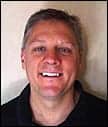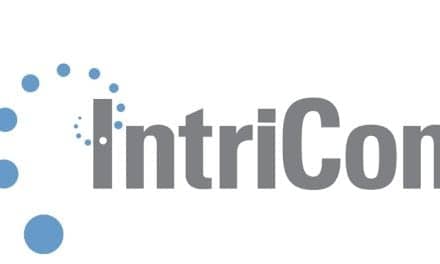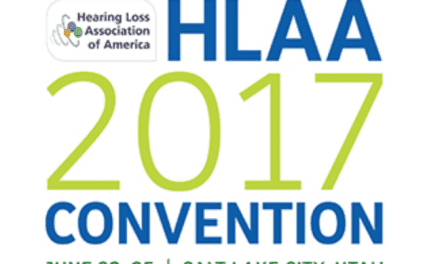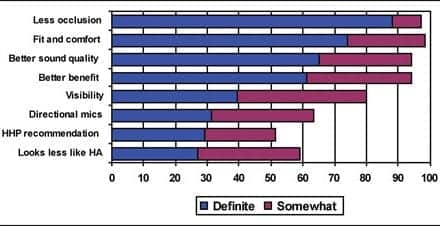
|
| Ed Keller |
The Hearing Review recently spoke with Edward Keller and asked him a few questions about the EarQ Group, which is based in Syracuse, NY. Keller is the founder and president of EarQ Group and also owns five dispensing offices in the Syracuse area.
HR: Can you tell us a little about EarQ? What is it, and why did you establish the group?
Keller: The EarQ group started in 2001 by a group of private-practice owners who, in view of the challenges in our industry, started analyzing what was available in terms of practice support. We joined together in a philosophy of how best to confront some of the big issues facing practice owners and how to become more successful in confronting the industry’s competitive challenges—and ultimately, the industry’s evolution. Our goal is to provide business support services that are adaptable to any practice’s needs.
Today, hopefully by the time of this publication, we will have reached our 1,000th location associated with our group. So, we’re one of the few organizations enjoying the benefits of this economy, and I think that’s because today’s private-practice owners are looking for solutions, support, and a structure in which they’re independent but not completely alone. And we can supply them with the support they need.
HR: There are several networks and buying groups in the industry. What do you see as EarQ’s niche or key strength?
Keller: What we really tried to do was to analyze what was happening inside our own offices, then we built programs around those individual needs—and we’ve continued to do that today. The EarQ Group now offers health insurance, retirement, and great pricing. I think where we really stand out, however, is our adaptability and flexibility. Every practice has different needs. Marketing is one good example, as is analyzing how a practice is performing compared to industry standards or other comparable practices. We have great programs built around “live practice” experience.
We also have a team of business advisors who are trained in practice management—not just selling. These people are trained to look at what’s happening in your practice. For example, perhaps business is down some. So, why is it down and how do we respond to that? We have the experience and programs in place to proactively work for your practice, rather than to just sit there and hopefully perform. Maybe you need to add an audiologist to your staff. We’re communicating with virtually every audiology program in the country to identify students—both present and future graduates—who are looking for positions, and we help place these graduates in extremely promising careers in private practice throughout the country.
HR: How has the recession influenced EarQ and its members?
Keller: Certainly, some practitioners have been affected by it. But, in truth, the recession has been a great opportunity to focus on the efficiency of the practice. Are you maximizing all your resources? Are you taking advantage of all your opportunities to promote your reputation and spread the word about your practice? By doing this, we’ve found great opportunities for growth. We’ve been assisting a lot of our members in reaching out to local organizations in their communities, and we’re getting great responses. We have a program called the Hearing Healthcare Benefit Plan that offers a benefit to anything from a small organization—like a local senior center, small industry, or fire department—right up to national organizations. This is just one example of using your strengths, along with EarQ’s resources, to become more successful.
HR: One of the obvious big trends in recent years has been retail consolidation and manufacturer/network purchases of dispensing offices. What’s your perspective on this?
Keller: Frankly, this is something of a sensitive point for us, because what we’re seeing are organizations that were once trusted allies now becoming our competitors. So, I think it’s a very important time to choose your partners and choose them wisely. Currently, there are very few groups not associated with some form of competition in your practice, and I think that’s another place where we stand out. We’re completely independent; we don’t own practices; we’re not interested in acquiring practices. We’re there to help identify needs and add value to your practice. Because of that, we’ve helped a lot of our members grow in these tough economic times. But, more than ever, be careful of who you’re associated with, because it may ultimately be the same company you’re competing against.
HR: What other major trends do you see as influencing dispensing professionals?
Keller: One thing that is helping us is that we’re referring more and more patients to our members every year. This means more patients in the door. We’ve been able to refer more patients to our member practices.
I also think today’s practices are looking for solutions. There’s always a primary focus on the patient, and a lot of the day-to-day business demands faced by private-practice owners are challenging. So, the EarQ Group focuses on bringing additional business support to its members. What this really boils down to is flexibility. Recently, we had one practice in which we helped them find financing to buy another practice. With the right relationships, we were able to reach out and present the best opportunities for that individual. So, we can do a lot of work very quickly in areas that private practice owners may not have much experience.
HR: What new things are going on at EarQ and what do you see for the future?
Keller: The key for the future is adaptability—whether you’re in a retail, office, or clinical location. The environment is changing so quickly—the competitive environment is getting much more intense—that it’s critical we have the business services that can help private practices face whatever challenge they’re up against.
That’s why we’ve been focusing on things like health insurance; it’s difficult for a small business today to get health insurance for its staff, but the EarQ Group is offering it in more and more states throughout the country. Retirement plans were another important issue expressed by our members, so we’ve set up programs for members in the group.
The way we look at it is that we’ve got all the elements and services that a big business has, but our members still maintain their autonomy and independence. And that’s so important. Our members take great pride in the fact that they’re in business for themselves and they really put their patients first. And, although they’re wonderful with their patients, many simply don’t have the background or the business support to grow their practice. In other words, they’re a great hearing care provider, but they’re also supposed to be a marketing expert, and they’re just not trained for that. Or they’ve lost a key employee and need to replace them, so now they need to become a recruiting expert. Maybe they need to analyze their bookkeeping, so now they need to become an accountant. My point is that a professional in private practice needs to be a “jack of all trades,” and what the EarQ Group offers them is the ability to focus more time on their patients and not so much time and attention to learning all the business-related aspects—we provide them with answers for the things they need help with.
For more information, contact Ed Keller at , (866) 432-7500, or visit www.earq.com.





